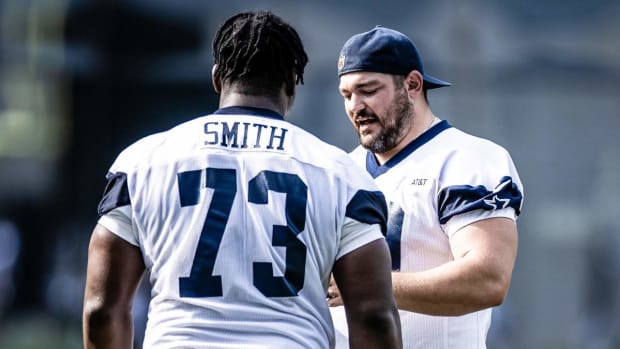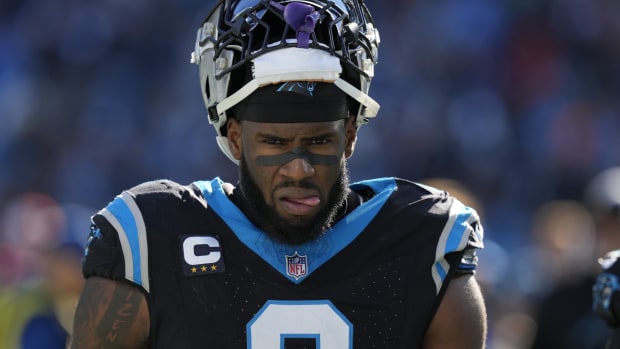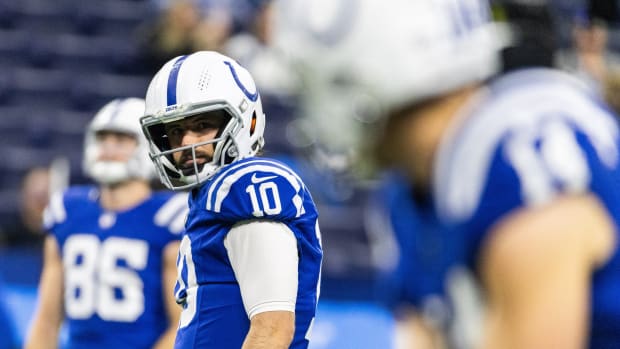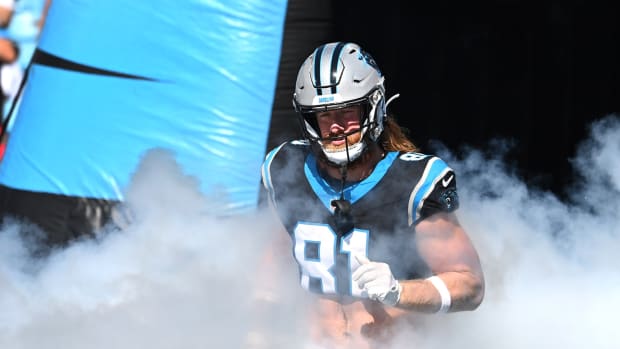Five Key Legal Points Surrounding Kareem Hunt
A video published by TMZ on Friday shows NFL running back Kareem Hunt arguing with a woman, who was reportedly 19 years old, in a hotel hallway. He then appears to push her away, which is followed by the woman slapping him in the face. Hunt is then shown shoving several people, including the woman, as part of a multi-person altercation. The incident was recorded by hallway surveillance cameras in Cleveland’s Metropolitan hotel. The video, which had not been publicly seen until Friday, indicates a time and date stamp of 3:22 a.m. on Feb. 10, 2018. TMZ also reports that the woman may have called Hunt, a Kansas Chiefs player until his abrupt release Friday evening, the n-word. The Cleveland Police Department investigated the incident but did not charge Hunt or, it appears, anyone involved.
In response to TMZ’s published video, the NFL placed Hunt on the Commissioner's Exempt list. This list is tantamount to an administrative suspension whereby Hunt will be ineligible to play NFL games and will be barred from practicing with an NFL team but will still be paid any money owed to him by the Chiefs as part of his employment contract. According to the NFL’s personal conduct policy, use of the list is appropriate if a player is formally charged with a violent crime or sexual assault, or if an NFL investigation ”finds sufficient credible evidence that it appears a violation of the policy has occurred.” Hunt will remain on the exempt list until the NFL determines if he violated the league’s personal conduct policy. This means Hunt will be off the field for an indefinite period.
Hunt—who as a rookie in 2017 led the NFL rushing—will be off the field for another reason. The Chiefs released him late Friday night. In a statement, the team highlighted that Hunt “was not truthful” about the incident when he previously discussed it with team officials. It stands to reason that Hunt’s 2018 season is over and that it could be a long time before the 23-year-old Hunt returns to an NFL field—if he ever returns.
Here are five key legal points:
1. The Chiefs and NFL knew about the incident since its immediate aftermath
NFL spokesperson Brian McCarthy tweeted a statement Friday night indicating that the league’s investigation into Hunt “began immediately” following the incident. TMZ reported on the incident and accompanying police report two days after it occurred. On July 16, TMZ published the police body cam video from the incident. A month later, Chiefs CEO Clark Hunt (no relation) acknowledged the incident in comments to the media. He noted “Kareem is a young man ... I’m sure he learned some lessons this offseason and hopefully won’t be in those kind of situations in the future.” Clark Hunt also expressed that he did not expect the running back to be suspended by the NFL, though as the team’s CEO, he was hardly a neutral evaluator of that question.
KLEMKO:The Kareem Hunt Video: Has the NFL Learned Nothing Since Ray Rice?
These points highlight that the league has had ample time to explore what took place and to attempt to acquire the surveillance video. That lengthy and perhaps slow-moving investigative process bears absolutely no resemblance to the haste at which Hunt’s NFL career was shut down on Friday night. This suggests that the difference between Hunt playing NFL football is as much about public access to a damning surveillance video as it is about what took place on that video.
2. It’s unclear why the NFL had not suspended or exempted Hunt—unless the NFL believed the evidence weighed in Hunt’s favor
Since the NFL has known about the incident for nearly 10 months and had declined to invoke any remedial measures until Friday evening, the league had apparently weighed the available evidence in a light favorable to Hunt.
This is true for at least two reasons. First, we know that the league did not find that Hunt violated the personal conduct policy because he hasn’t been suspended. Second, we know that the league hadn’t even found “sufficient credible evidence that it appears a violation of the policy occurred.” This is because Hunt wasn’t placed on the Commissioner Exempt list until Friday night.
It wasn’t as if the NFL’s hands were tied by any meaningful requirements of procedural fairness. The NFL enjoys a level of discretion in player discipline unmatched by any other major sports league. Article 46 of the NFL-NFLPA collective bargaining agreement forbids “conduct detrimental to the integrity of, or public confidence in, the game of professional football.” This expansively-worded provision accords commissioner Roger Goodell with nearly unlimited choice in determining (1) whether off-field misconduct occurred, (2) whether any misconduct was detrimental to the league; (3) how “detrimental to the league” ought to be defined in a given situation; and (4) an appropriate punishment. As Tom Brady’s “Deflategate” litigation revealed, even when the commissioner appears to have crucial facts wrong, courts will not supply disciplined players with procedural rights that their union, the NFLPA, failed to negotiate.
These same points are true in regard to matters of domestic violence. Such matters are governed by a league interpretation of Article 46: players who commit domestic violence receive a minimum six-game suspension for a first-time offense. This policy, however, has not always been applied. New York Giants kicker Josh Brown was originally suspended one game instead of six despite admitting to domestic violence.
As Robert Klemko explains in a MMQB column, Goodell has not always placed an especially high bar for finding a domestic violence suspension. Last year Goodell suspended Dallas Cowboys running back Ezekiel Elliott for six games even though (1) Elliott had not been criminally charged, (2) there were serious questions about the evidence and (3) there does not appear to have been any video of the alleged incident involving Elliott.
If the ultimate answer is the NFL simply found Hunt credible and his victim less credible, the league should revisit the procedural steps it undertook to reach such a conclusion.
3. It’s unclear if the NFL has interviewed Hunt
It’s unknown if NFL officials interviewed Hunt about the incident. It would be confounding if they did not interview Hunt given the existence of a police report, the seriousness of the matter and the investigatory relevance of whether Hunt’s account was believable and logically-consistent and whether he seemed credible when telling it.
The league also has a practice of meeting with players who are accused of domestic violence in hotels. Goodell interviewed Ray Rice about a 2014 incident in which he punched his then-fiancée, Janay Palmer, in an elevator of Revel Hotel and Casino in Atlantic City. Rice, however, had been charged with a crime whereas Hunt has not (yet) been charged.
KLEMKO:Washington and Reuben Foster sends the message that winning matters most
4. Shouldn’t the NFL or Chiefs have seen the hotel surveillance video long before Friday?
It appears that the NFL had not seen the Hunt hotel video until TMZ published it on Friday. This begs the question of how a private media company could acquire a disturbing video about an athlete before that athlete’s private sports league—even when that league was aware of the video’s existence.
It isn’t as if TMZ is a governmental entity with subpoena power. And it isn’t as if TMZ is a party to a litigation that would permit pretrial discovery into the incident and its evidence. TMZ and the NFL are both private companies that are subject to the same rules of engagement. Yet, like with Ray Rice, TMZ acquired a crucial surveillance video while the NFL watched from the sideline.
ESPN’s Adam Schefter reports that, according to sources, the NFL made “multiple attempts” to obtain the video but were denied by the hotel, the police and the persons who were near and around Hunt.
This is not surprising.
Hotels normally do not turn over surveillance videos unless required to do so by court order. Hotels, like any business, want to minimize their potential involvement in legal disputes. They will thus seek ways to evade participation in post-incident investigations. Hotels are also mindful of the risk of premises liability in the event someone is injured in an incident that occurs on the hotel’s property. Turning over the surveillance video—which is the Metropolitan Hotel’s private property—could make it more likely that someone in that ruckus claims an injury and sues the hotel.
As to law enforcement, while police departments are public entities and are thus subject to public records request, they are usually permitted under state law to reject such requests on account of an on-going police investigation. To that end, it remains possible that Hunt and others who were present could be charged with crimes. Ohio law generally provides for a six-year statute of limitations for felony charges and a two-year statute of limitations for misdemeanor charges. The fact that Hunt hasn’t been charged doesn’t guarantee he won’t be.
In terms of alleged victims declining to respond to the NFL, this too was expected. Those alleged victims have little to gain by cooperating with the NFL and may be concerned that their names would become public if they cooperated with the NFL (a league that is known to leak sensitive information from time-to-time). The alleged victims may have employers who strongly prefer their employees not gain national media attention for involvement in a hotel hallway fight with an NFL player.
The league should have been immediately aware that a video existed. The Metropolitan is a four-star hotel. A hotel of that caliber is highly likely to use hallway and exterior surveillance cameras. Hotels tend to use cameras since hotel insurance rates for the risk of premises liability are affected by the quality of the hotel’s on-site security measures. Even if the NFL wasn’t sure about the video’s existence, finding out would have been very easy: a league official could have called the hotel and asked or the league official could have simply visited the hotel in person. According to Schefter’s report, it appears the NFL was aware.
So what could the league have done to obtain the video? One approach would been to take the steps used by TMZ. Another approach would have been to demand the video from Hunt or his attorney. It’s not clear if Hunt or his attorney possessed the video, but there’s a chance the police would have shared it since the video relates to Hunt’s legal defenses should he be charged with a crime. Also, if the Hunt’s victim has notified Hunt that she plans to sue him, then Hunt's attorney could seek a court order demanding the video be turned over by the hotel.
If Hunt had the video, the NFL could have demanded that he share it upon threat of punishment under Article 46. Along those lines, the league could have taken an adverse inference from Hunt’s refusal to turn over the video and then suspended him for the refusal. Such a demanding approach would hardly have been unprecedented: recall that Goodell justified his Article 46 suspension of Brady in part because Brady didn’t turn over his phone.
Alternatively, if Hunt did not have the video, the NFL could have at least required he prove he and his attorneys made a good faith effort to try to acquire it.
5. Hunt was likely not justified in his attack and could face a civil lawsuit
The video indicates that the unidentified woman argued with Hunt before hitting him in the face. There is also an accusation that she called him the n-word. Even assuming that account is completely accurate, Hunt probably lacked the legal right to respond by pushing, shoving and kicking people to the ground.
Self-defense laws generally permit a person to defend himself or herself when faced with imminent harm. However, those laws do not permit retaliation or retribution. While it’s possible that Hunt felt threatened—especially given he had already been hit and may have been called a racist word—the video suggests that he aggressively pursued someone who had hit him. Such an account would make it difficult for him to claim he acted in self-defense since his response would arguably have reflected retaliation more than defense.
Even if Hunt doesn’t face criminal charges, he could be sued civilly by the persons with whom he made physical contact. They could insist he battered them through unlawful and injurious physical contact. They could also contend that he inflicted emotional distress through outrageous behavior that, in turn, caused them turmoil. Those persons might also sue the hotel under a theory of premises liability in that the hotel arguably failed to protect them from Hunt.
Michael McCann is SI’s legal analyst. He is also Associate Dean of the University of New Hampshire School of Law and editor and co-author of The Oxford Handbook of American Sports Law and Court Justice: The Inside Story of My Battle Against the NCAA.




































